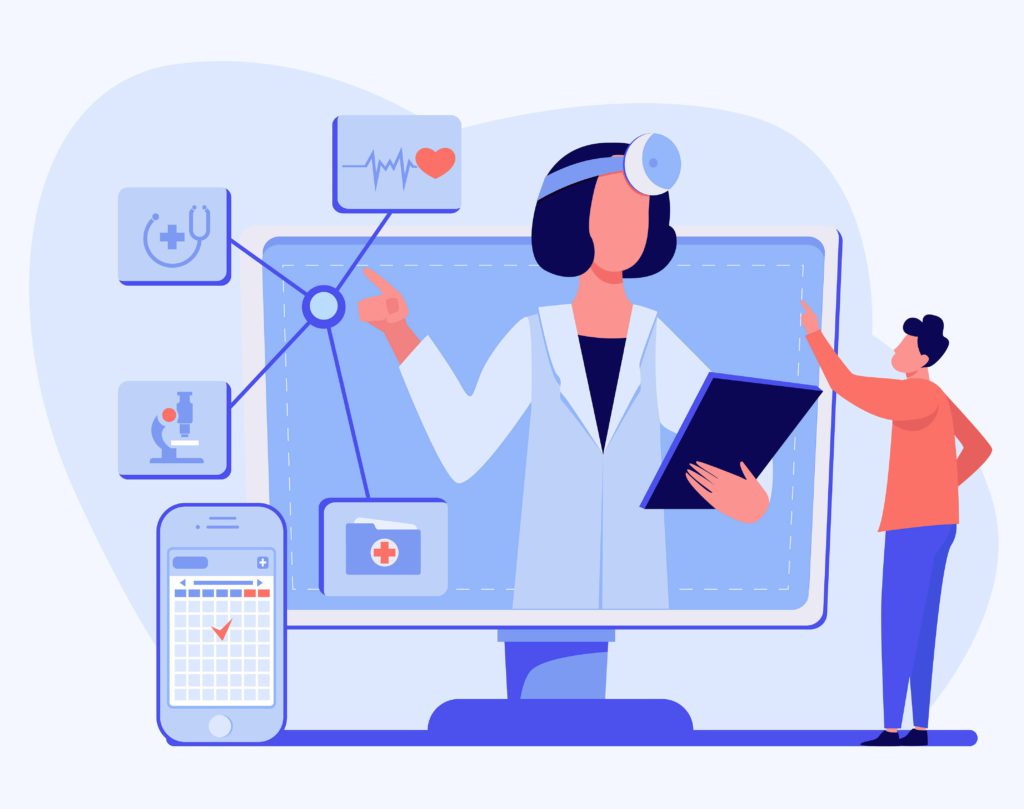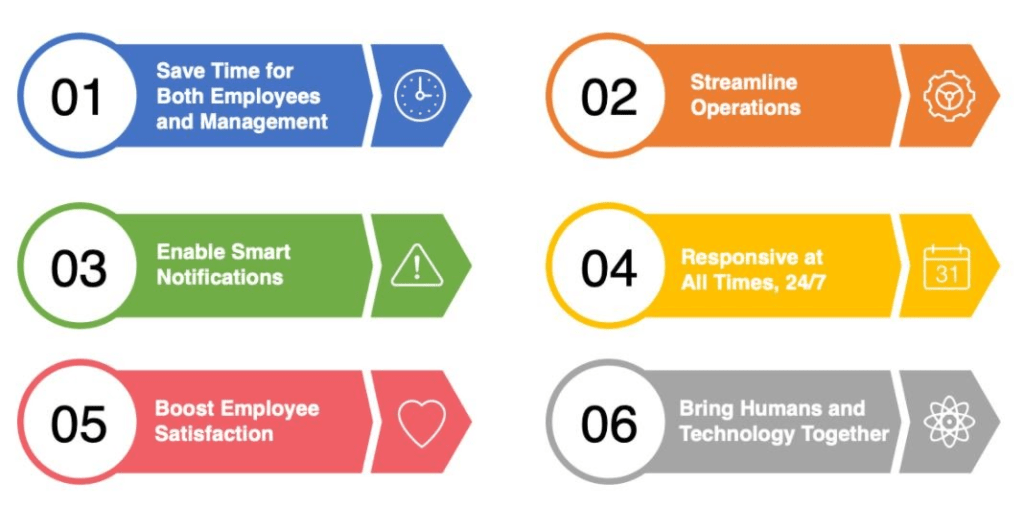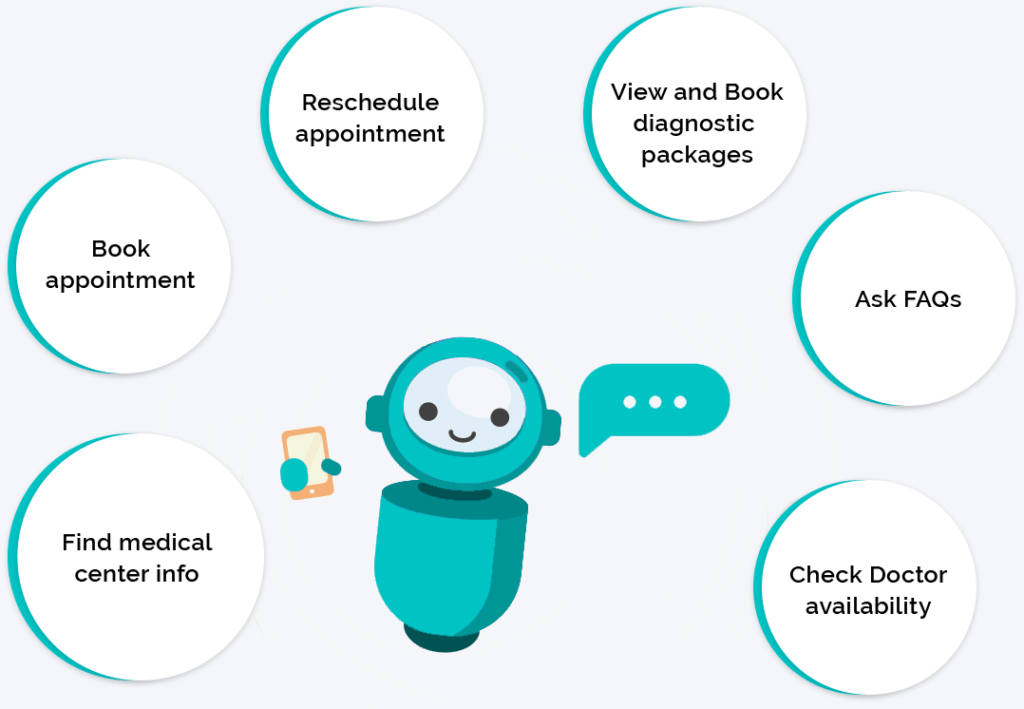Project Management
Virtual Assistants employed in the Health sector
- Mithun
- July 12, 2021
In an overwhelmed healthcare system, outdated technology and processes cause obstacles, resulting in higher prices, alienated patients, and poor outcomes. Healthcare Virtual Assistant and chatbots, on the other hand, strive to improve the interaction between healthcare professionals, payers, and patients by providing more information to end-users and assisting healthcare organizations in improving processes and lowering costs.

Artificial Intelligence is largely utilized in the healthcare business to improve efficiency and consistency. It’s also utilized to assist healthcare workers with mundane activities such as gaining access to patients’ records, delivering therapy guidelines, prescriptions, detailing insurance coverage, and general information to patients. In general, delivering non-clinical guidance more effectively so that healthcare professionals can concentrate on their primary responsibilities.
Virtual assistants help patients achieve their online health goals by utilizing the web and mobile-based interactivity tools. AI-powered virtual assistants are being used by a variety of organizations to improve the healthcare consumer experience, increase efficiencies, stimulate mobile engagement, and increase wellness participation rates.
Voice-enabled virtual assistants will change the delivery of healthcare to the patient through:
- Obtain access to electronic health records.
- Obtain access to diagnosis and prescription options.
- Access to health-related data will be improved.
- Improve patient discharge and treatment follow-up.

How getting a virtual assistant on board can benefit in the Health sector or a hospital?
Saves Time
1. Find more time for patients
Many health care professionals find that they don’t have enough time to devote to their patients. Some of the operational responsibilities can be delegated to a virtual assistant. So, they can have a lot more time to devote to patients as a result of this.
2. More hours in a day
The majority of a health practitioner’s time during a visit is spent obtaining patient history, considering treatment alternatives, and analyzing all information. A virtual assistant can guide your patients through common inquiries and offer the results for you to review.
3. Saving health care team’s time
If the health care team spends too much time on repetitive, monotonous chores, core operations will suffer. You may successfully outsource such jobs to a virtual assistant, freeing up your health care team’s time to focus on higher-priority responsibilities.
Saves Money
4. One Time Pay
When it comes to putting virtual assistants in place, math is simple. You only have to pay once during implementation and nothing afterward. As a result, hiring a virtual assistant won’t break the bank.
5. No office setup required
A virtual assistant doesn’t need a dedicated physical spot as it can be accessed online 24/7.
6. No extra expenses
Additional benefits, such as health insurance or a pension, are not required to be paid to a virtual assistant. As a result, you may get your task done without incurring any additional costs, and with increased efficiency.
Because hospitals now have someone working in the background, doctors can pay greater attention to each patient and can also design an effective treatment plan without having to rush to the next patient.
Supercharges Productivity
7. 24/7 availability
A Healthcare virtual assistant will be available to you 24/7. And this is a blessing in disguise for doctors. Perhaps no one requires support 24/7 more than someone who is in the business of saving lives. Doctors may rest easy knowing that the virtual assistant will alert them in any crisis and handle patient questions on their behalf.
8. Improved service quality
Hospitals can better leverage their health care team’s capabilities now that they’ve been taken away from the responsibility of data management, billing, and other humdrum tasks. The quality of the facilities and services will directly increase eventually leading to increased customer satisfaction.
9. Better service = solid standing
Profits are important, but a good reputation is more important to hospitals. And this is directly related to the quality of offerings. Hospitals or Clinics may focus on enhancing service quality while a virtual assistant relieves a load of time-consuming activities.
Improves Customer Relations
10. Improved patient experience
Overcrowding typically causes patients to feel uneasy, and they may be hesitant to speak up about their concerns in front of others. Patients can have one-on-one conversations with a virtual assistant from their comfort zone. This will make a significant difference in the patient’s entire experience.
11. Improved patient-physician communication
Doctors can pay more attention to each individual as they have someone working in the background. Not only will the patient be able to explain their concerns thoroughly, but doctors will also be able to devise a proper treatment plan.
12. Personal medical advice
Patients want prompt and accurate responses to their healthcare questions. Employing patient-focused virtual assistants will provide them with access to information relevant to their age, financial capabilities, and other factors 24/7. Patients will be able to take complete control of their health as a result of this.
13. Empower patients

Highly Qualified Workforce
14. No worries about procrastination
Procrastination is a legitimate worry among full-time employees. Virtual assistants, on the other hand, are AI-powered, so you can rest assured that allocated tasks will be accomplished to satisfaction.
15. Greater flexibility
Virtual assistants can handle a variety of tasks, including account management, bill paying, and much more. Everything about them, from their schedules to their job, maybe customized to meet specific requirements.

Specialized Task Assistance
16. Medical invoicing
Electronic medical records have become more popular among medical practitioners in recent years. A virtual assistant will be in charge of routinely updating these data with the most recent prescriptions and bills. They’ll also create invoices and transmit them to the appropriate parties without any human involvement.
17. Data management
It’s no secret that doctors are swamped and frequently lack the resources they require. Another shocking finding of the Association of American Medical Colleges is that a moment is approaching when the number of certified doctors will be insufficient to care for the growing number of patients. In this situation, hiring a virtual assistant to handle all of the administrative and documentation tasks is the best option.
18. Insurance Calculation
Because each patient’s situation is unique, verification of their medical insurance policies to determine coverage and compute the amount payable is crucial. Especially in a hospital, it needs a tedious amount of time to conduct these computations. Insurance issues can be handled by an AI-enabled virtual assistant.
19. Medical transcription
It takes a long time to write detailed patient reports, exam notes, discharge summaries, and other papers. A virtual assistant is programmed to do this and arranging them and linking them to the appropriate patient’s information, it saves a lot of time for the health care team.
20. Schedule management
Virtual assistants are well-equipped to help medical professionals schedule and arrange everyday tasks. They’ll assign daily tasks to the hospital’s team and track their progress. They will also follow up with patients to ensure that prescriptions are delivered and insurance is verified, ensuring that services are delivered promptly.
21. Supply management
Syringes, bandages, drugs, x-ray film viewers, anesthetic, and other supplies are always in short supply in a medical unit. A virtual assistant can keep you up to date on stock management in real-time. This way, hospitals or other health care units never have to worry about running out of essential supplies.
22. Accurate note-taking
All critical communications and notes can be recorded by a virtual assistant. They will deliver the messages to the appropriate parties at the appropriate times. This way, patients won’t miss any essential messages from doctors or doctor’s won’t forget to attend any important meetings during the day.
Many physicians are frustrated managing and navigating Electronic Health Records, so there is probably more traction to be gained in this market (EHR).
Machine learning applications demonstrate a pattern among present and emerging virtual assistant solutions in the healthcare business. While the goals of the platforms are essentially the same, namely to reduce administrative workload, there are a few differences worth highlighting.
During this pandemic, Virtual Assistants are having an impact on the healthcare sector by providing centralized digital centers that use portable devices to allow for quick decision-making and continuous clinical monitoring. The need for such technology has become critical, given the increasing number of patients now in hospitals. Given the increasing rate of EHR use by physicians, we should expect continued growth and expansion of applications in this industry.
Email Newsletter
get updates & more
